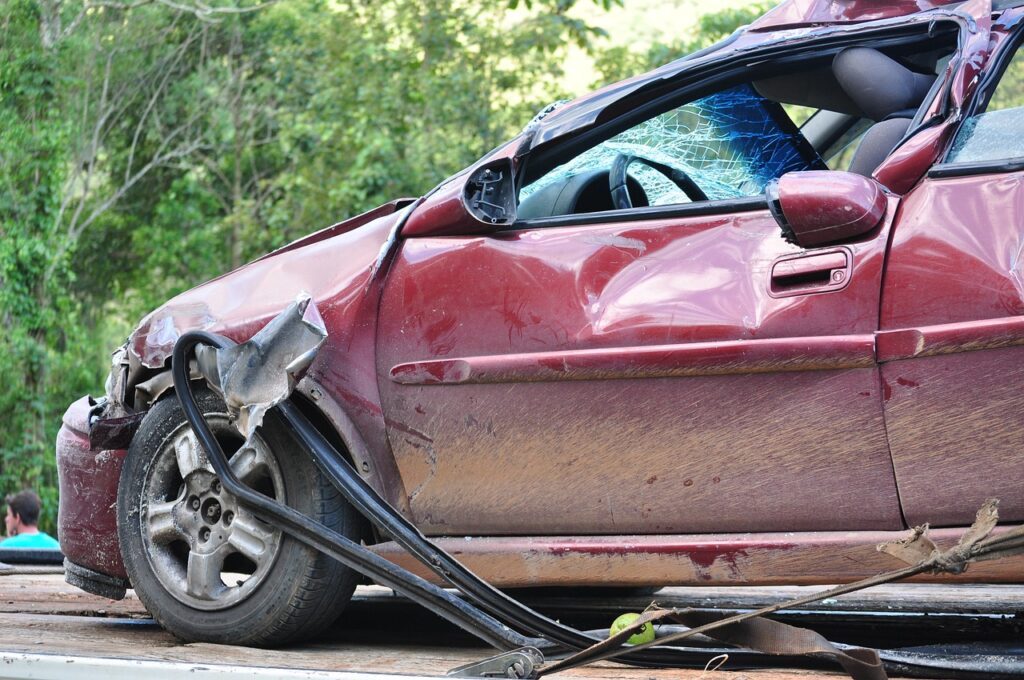How to Maintain Your Mental Health After a Car Accident

Experiencing a car accident can be a traumatic event, affecting not only your physical health but also your mental well-being. Many people find themselves grappling with a range of emotions, including anxiety, depression, and post-traumatic stress disorder (PTSD) after such incidents. It’s essential to prioritize your mental health during the recovery process and seek help when needed. This article will explore effective strategies for maintaining your mental health after a car accident, along with the importance of hiring a Knoxville car accident lawyer to help you navigate the legal complexities that may arise.
Table of Contents
- Acknowledge Your Feelings
- Seek Professional Help
- Establish a Support System
- Practice Self-Care
- Set Realistic Goals
- Consider Mindfulness and Relaxation Techniques
- Stay Informed About Your Case
- Hiring a Knoxville Car Accident Lawyer
- Engage in Positive Distractions
- Avoid Substance Abuse
- Monitor Your Progress
- Focus on Future Goals
Acknowledge Your Feelings
One of the first steps to maintaining mental health after a car accident is acknowledging your feelings. It’s normal to experience a range of emotions, including shock, anger, guilt, and sadness. Allow yourself to feel these emotions rather than suppressing them. Journaling can be a helpful tool for processing your thoughts and feelings. Writing about your experiences and emotions can provide an outlet for your feelings and help you gain perspective on the situation.
Seek Professional Help
If you find that your emotional struggles persist or worsen over time, consider seeking help from a mental health professional. Therapists or counselors can offer valuable support and coping strategies tailored to your needs. Cognitive-behavioral therapy (CBT) is particularly effective for those dealing with anxiety and PTSD related to traumatic events like car accidents. A therapist can help you reframe negative thoughts and develop healthier coping mechanisms.
Establish a Support System
Maintaining connections with friends and family can significantly impact your mental health during recovery. Sharing your thoughts and experiences with loved ones can provide emotional support and help you feel less isolated. If you’re comfortable, consider joining a support group for individuals who have experienced similar situations. Talking with others who understand what you’re going through can be incredibly validating and may help you process your feelings more effectively.
Practice Self-Care
Prioritizing self-care is crucial for maintaining mental health after a car accident. This can involve engaging in activities that bring you joy and relaxation. Here are some self-care strategies to consider:
- Exercise: Physical activity can help reduce stress and anxiety. Aim for at least 30 minutes of moderate exercise most days of the week. Walking, yoga, or swimming are great options.
- Nutrition: Eating a balanced diet can positively impact your mood. Focus on consuming whole foods, including fruits, vegetables, whole grains, and lean proteins. Avoid excessive caffeine and sugar, as they can contribute to mood swings and anxiety.
- Sleep: Adequate sleep is essential for mental health. Establish a calming bedtime routine and aim for 7-9 hours of quality sleep each night. If you have trouble sleeping, consider relaxation techniques like deep breathing or meditation before bed.
Set Realistic Goals
After a car accident, it’s essential to set realistic goals for your recovery. Understand that healing takes time, and it’s okay to progress at your own pace. Break down larger goals into smaller, manageable steps to avoid feeling overwhelmed. Celebrate your achievements, no matter how small, as this can boost your confidence and motivation.
Consider Mindfulness and Relaxation Techniques
Incorporating mindfulness and relaxation techniques into your daily routine can be beneficial for your mental health. Practices such as meditation, deep breathing exercises, and progressive muscle relaxation can help reduce anxiety and improve your overall well-being. Apps like Headspace and Calm offer guided meditation sessions that can help you develop a consistent practice.
Stay Informed About Your Case
If your car accident resulted in injuries or damage to your vehicle, you might be dealing with insurance claims and potential legal matters. Staying informed about your case can help reduce anxiety and provide a sense of control. It’s essential to have a clear understanding of your rights and options as you navigate the aftermath of the accident.
Hiring a Knoxville Car Accident Lawyer
Navigating the legal aspects of a car accident can be overwhelming, especially when you’re trying to manage your mental health. Hiring a Knoxville car accident lawyer can provide you with the expertise and support needed to pursue a successful claim. An experienced Knoxville car accident attorney can help you understand your rights, gather evidence, negotiate with insurance companies, and advocate for fair compensation.
By alleviating the legal burden, a lawyer allows you to focus on your recovery and mental well-being. They can handle the complexities of your case, including filing paperwork, gathering documentation, and representing you in negotiations or court if necessary. This support can significantly reduce stress, allowing you to concentrate on healing.
Engage in Positive Distractions
While it’s essential to process your emotions, engaging in positive distractions can help improve your mental health. Activities that you enjoy or that require focus can provide a break from your worries. Consider pursuing hobbies, such as painting, gardening, or reading. Engaging in creative outlets can serve as a therapeutic release and help you reconnect with aspects of your life that bring you joy.
Avoid Substance Abuse
In times of distress, it may be tempting to turn to alcohol or drugs as a way to cope with emotional pain. However, substance abuse can exacerbate mental health issues and lead to addiction. Instead, seek healthier coping mechanisms. If you find yourself struggling with substance use, consider reaching out to a professional for help.
Monitor Your Progress
As you navigate your recovery, take time to reflect on your progress regularly. Acknowledging your achievements, no matter how small, can foster a sense of accomplishment and motivate you to continue moving forward. If you find that certain strategies aren’t working, be open to adjusting your approach. Mental health is a dynamic process, and what works for one person may not work for another.
Focus on Future Goals
While it’s important to process your feelings about the accident, focusing on your future goals can also be beneficial. Consider what you want to achieve in the coming months and years. Setting new goals, whether related to your personal life, career, or health, can provide a sense of purpose and direction during a challenging time.
Maintaining mental health after a car accident is a vital aspect of recovery. Acknowledging your feelings, seeking professional help, and establishing a support system can significantly impact your emotional well-being. Incorporating self-care practices, mindfulness techniques, and positive distractions can help you cope with the challenges you face.
Additionally, hiring a Knoxville car accident lawyer can alleviate some of the legal burdens you may encounter, allowing you to focus on your recovery. With the right support and strategies, you can navigate this difficult time and emerge stronger on the other side. Prioritizing your mental health will help you heal and rebuild your life after a car accident, ensuring that you can move forward with hope and resilience.
